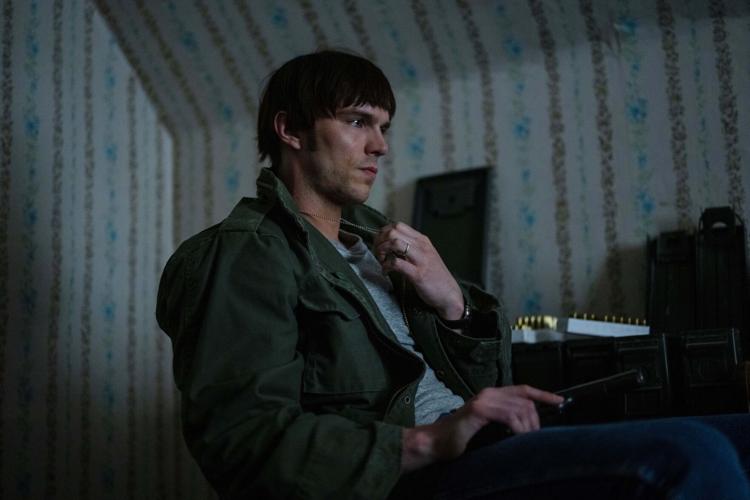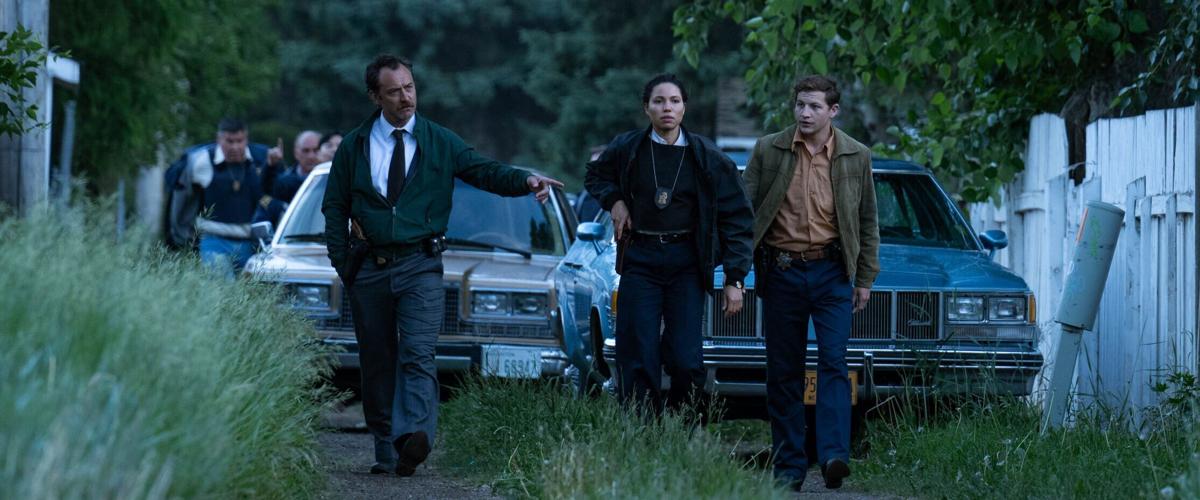Nicholas Hoult didn’t know how to approach playing the leader of a radical group in the Pacific Northwest.
“If someone describes a character as ‘charismatic,’ I don’t know how to do that,” he explains.
Yet in the new film “The Order” Hoult must be inspiring enough to get people on his side, willing to risk their lives.
Instead of attempting that level of attraction, he dug into the research and tried to get as much of a picture as possible of Bob Mathews, the focus of the 1989 book, “The Silent Brotherhood.”
“I knew that he didn’t drink. I knew that he took care of himself and weightlifted and was very much about nature and the outdoor lifestyle,” Hoult says. “So, I stopped drinking, started getting fit and taking care of myself and felt pure – even though his brain and his internal thoughts aren’t pure.”
People are also reading…

Nicholas Hoult stars in "The Order."
Hoult listened to a recording of a Mathews speech and found transcripts of others he had given. The group’s motto – defeat never, victory forever – was something he thought could end a scene – “like a rallying war cry.”
Instead of pretending to be charismatic, he leaned in on the attributes that drew people to Matthews.
“And then, all of a sudden, you’re put into a hall and you’re giving a hate speech,” he says. “I remember doing the first take on getting involved and we had brilliant supporting actors (who were so involved) it felt terrifying. Being in that room, you were kind of shocked.”
A fellow actor told Hoult he could see a vein pulsing while he spoke.
“There was something about Bob – as a character – who had accepted his fate, and there was a calmness and a distilled directness,” Hoult says. “But inside there was all this kind of crazy darkness and emotion and manipulation going on.”
Based on a real group known as The Order, the cult grew after Mathews spoke at a National Alliance convention trying to recruit followers to his White American Bastion group. Members of the Aryan Nations joined him at his home in Metaline, Washington, and worked to support white separatism. They gained financial support by robbing businesses and armored cars, then started counterfeiting.
That drew him into the radar of the Federal Bureau of Investigation.
In the film, which is directed by Justin Kurzel, Jude Law plays Terry Husk, an amalgam of agents who worked on the case.
To provide tension, Kurzel had the cast separated so they didn’t interact until necessary.
Law, in fact, didn’t meet Hoult until the first scene they had together.

Jude Law, from left, leads a team closing in on a group of white supremacists in "The Order." Joining him are Jurnee Smollett and Tye Sheridan.
“We were there three, maybe even four weeks until we got to the scene where Mathews is trailing Husk,” Law says. “We didn’t even say hello that morning. We just shot the scene, so what you see is us really meeting for the first time.”
Hoult had worked with Kurzel on “True History of the Kelly Gang” and felt he could trust him.
“This is a character that’s very tricky to take on and navigate,” Hoult says. “I knew that he would give me lots of different inputs and ideas to bring Bob Mathews to the screen in a way that was unexpected. I knew that I had a leader I could trust in keeping me somewhat safe in doing so.”
Law calls his co-star courageous for taking the role.
“Roles that scare you are often the most fulfilling because they’re a challenge,” Law says. “You don’t want to go to a dark place like that on your own. You want to know that the person (in charge) has got your back and is protecting you, the actor.”
Kurzel, he adds, steered and nurtured the actors so they would make confident choices. As a result, “it was one of the best experiences I’ve ever had with a director in regard to that.”
Law also got to give his character some physical failings.
“That came about because I got sick, and I was very run down and tired and Justin saw something in me. He was like, ‘You’ve got to do this; this is the guy we’ve got to keep.’”
A heart condition, blood thinners and nose bleeds resulted after discussions.
“I wanted you to worry that he wasn’t actually going to be able to make it,” Law says.
Like Hoult, Law researched Mathews to determine how all-consuming the case could be.
“I spoke to several special agents who served in that time and (learned) things changed quite dramatically in the mid- and late ‘80s, especially what weapons they used. Husk was very much of the old guard.”
The actors’ work was like putting together a puzzle, Hoult says.
“One of the privileges of being an actor is that you get to experience many different times in history. That can only widen your world view – even when you go into very dark, horrible places like this,” he adds. “A lot of us would like to deny that we have all these horrible urges and feelings and emotions inside of us, but everyone does. If you can understand them, accept them and then process that power and understanding in the right way, a lot of good can come from that.”














